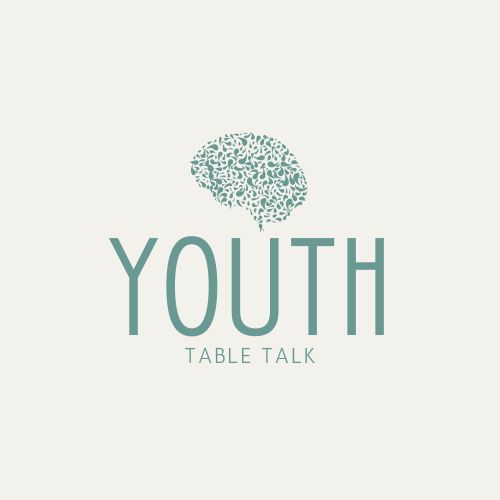Maintaining a relationship with a covert narcissist is challenging due to their toxic, dominating nature, excessive need for admiration, lack of empathy, and deep-rooted insecurities. If your partner is not willing to identify his narcissistic traits, it is high time for you to leave that person to sustain your mental health. When you are in a relationship with a covert narcissist, one day, you have to stop putting up with them and leave. When you talk about narcissism, the very first words that come to mind are a self-obsessed, controlling, and dominating person. But covert narcissism is a subtle type of narcissism where someone uses silent means like guilt trips and gaslighting to prevent others.
When you are in a relationship with a covert narcissist, their behavior shows that they dont care about other person. Breaking up with them is one of the hardest to move on from. According to statistics, around 70% of couples break up in the first year due to distinct relationship problems.
So, let’s shed light on covert narcissism and how to get over a covert narcissist breakup, shattering the shackles of mental stress.
1. Understanding Covert Narcissism
Compared to overt narcissists, covert narcissists frequently show behaviors that are not obvious to other person. However, they might appear quiet, reserved, or shy. Beneath the surface, they are manipulative, possess a strong sense of entitlement, and always seek attention.
Covert narcissists use subtler strategies to dominate and manipulate their partners than overt narcissists who display their qualities in public. Their tactics comprise being dominant, passive-aggressive, and playing the victim card.
After a breakup, there is still a feeling of rejection, something hurting that says we cannot be together as before. It’s probably better not to suppress or hold back one’s emotions immediately after a covert narcissist breakup.
Statistics:
As per statistics, 0.5 to 5% of people in the US have a narcissistic personality type, with a major number of people under the covert narcissism category. The hidden nature of covert narcissism makes it difficult for partners to understand, increasing relationship problems.
2. Weird Things Covert Narcissists Do
Any person who has undergone a breakup with a covert narcissist finds it difficult to heal from all the emotional distress and emotional turmoil. Recognizing red flags is vital to understanding if someone is a covert narcissist or not.
Let’s break it down their behavior into some weird things covert narcissists do:
Seeking Validation and Sympathy
Covert narcissists most often depict themselves as victims and turn the situation to blame others. They exaggerate petty issues to seek validation and sympathy from the people they hurt with their selfish behavior.
Covert narcissists tend to portray themselves as innocent such that the other person starts to reflect on whether it is their fault. Their dominating nature always craves appreciation and acknowledgement, even when not due.
Passive-Aggressive Behavior
Covert narcissists use the silent treatment as a means of manipulation; they display passive-aggressive behavior, unlike overt narcissists. Without any communication, they tend to guilt-trip others into fulfilling their demands. They subtly hide their true face by making fun of their partners and dominating every aspect of their lives.
Subtle Gaslighting
Covert narcissists use gaslighting as a manipulation tactic to dominate themselves in a relationship. Their partners start to doubt their memory and shift the blame on themselves in every argument. By masking their image, they ensure secretive behavior with their partners. Subtle gaslighting damages their partners’ self-esteem, personal growth, and confidence with time.
Unrealistic Expectations
They believe they are superior to others and deserve more attention and validation from others. When they want anything, they emotionally distance themselves, use silent treatment, or use manipulation tactics to meet their unrealistic expectations.
They have no empathy; covert narcissists cannot understand others’ emotions. Their main focus is always on themselves, and such behavior makes it challenging for people to recognize subtle red flags.
Secretive Nature
No one can guess that someone is a covert narcissist from their appearance. They conceal their secretive nature with perfection. Despite that, covert narcissists react harshly to criticism and distinct opinions. They believe they possess innocence and all the blame should fall on the other person.
3. Accessing the Consequences
Emotional Distress:
Relationships with a covert narcissist often lead to waves of emotional distress. Partners suffer from anxiety and depression and experience declining self-esteem and suicidal thoughts.
Gaslighting Tactics:
Gaslighting, the most common trait possessed by covert narcissists, instills damage to the victim’s mental health. Their partners start thinking about whether everything is their fault, and they shift the blame on themselves. By understanding this behavior, breaking free from toxic relationships becomes easy.
4. Ladder of Healing
Recognition and Acceptance:
The very first step toward healing is recognizing that the relationship was toxic and understanding the characteristics of covert narcissism. By that, regaining self-esteem and gaining strength is not difficult to achieve. Nothing should surpass personal power and will to overcome the manipulation.
It’s imperative to understand and tackle the existing adverse effects of manipulation. Self-reflection, therapy, and journaling can help identify and resolve these persisting attitudes and behaviors.
5.Self-Care and Healing Strategies
Reinforce Boundaries:
It is important to set and establish boundaries for the covert narcissist to overcome a covert narcissist breakup. That includes identifying red flags, prioritizing yourself, and focusing on healing.
Coping Mechanisms:
When we talk about healing, therapeutic techniques like CBT (Cognitive Behavioural Therapy) can help a covert narcissist breakup situation. According to positive psychology, coping mechanisms and therapy can aid in managing extreme emotions and processing grief.
6. Reconnect With Yourself
Maintaining Your Well-being:
It is common to get disconnected from one’s sense of self following a relationship with a covert narcissist. Finding your identity is easier by rebuilding connections with one’s core beliefs, interests, and hobbies.
Positive Thoughts and Behaviors:
It’s crucial to employ positive thinking daily and engage in activities that develop confidence and self-acceptance. Self-care practices, techniques for mindfulness, and surrounding oneself with people who have a positive influence endorse the healing process.
7.Community and Social Assistance
The Significance of Support Communities:
A key component of the healing process is reaching out to friends, family, or support networks for assistance with a covert narcissist breakup. These networks enhance the idea that one is not alone by offering affirmation and understanding. A sense of community can be formed by establishing new links, contributing to social activities, and joining communities with the same goals.
8. Ensuing Forgiveness:
Forgiveness is the foundation of healing for both the victim and the ex-partner. It’s about restoring mental wellness and eliminating the grasp of frustration. That is necessary to let go of all the mental strain after a covert narcissist breakup.
The healing process ensues with strategies like coping mechanisms, forgiveness, or mindfulness exercises. Sometimes, forgiving the narcissistic partner seems hard to swallow, but closure helps to speed up the healing of emotional grief.
9. Interpreting Relationships:
Healthy Relationship Dynamics:
Unhealthy relationships can be recognized and addressed by reflecting on earlier interactions. Self-reflection is paramount to creating better boundaries and communication in future relationships.
Restoration of confidence in oneself and other people requires time and effort. Rebuilding trust can be hard after recognizing and understanding red flags and other warning signs.
10. Acknowledging Growth and Resilience
Personal Development:
Resilience builds when one perceives a situation as an opportunity for personal growth. That involves accepting the insight into narcissist behaviors and implementing the changes to your own them as toward one’s personal development.
No matter how insignificant, appreciating oneself emphasizes the progress achieved in the healing process. This acknowledgement regarding growth promotes growth and resilience.
11. Take Professional Assistance:
The Significance of Expert Therapy:
It is quite useful to seek therapy or counseling sessions after a covert narcissist breakup—specialized assistance and guidance about following expert advice to get rid of the emotional turmoil.
Providing people with contact information for social networks, helplines, and mental health experts can be beneficial. They can get instant support and help when they need it.
People should seek professional help after a covert narcissist breakup, and they don’t have to suffer alone.
The Final Verdict
Summing up, acknowledge the strength and courage of yourself to leave a toxic relationship with a covert narcissist. Embrace your vulnerabilities as a means of self-growth and understanding yourself. The aftermath of an unhealthy relationship with other person is a period of self-growth. The healing journey would open new horizons for self-esteem and confidence to boost up after persistent mental stress.
In this blog, we have tried to cover healing journeys and therapeutic approaches along with weird things covert narcissists do. Your healing journey post-covert narcissist breakup can pave the path for your personal growth. Do not blame yourself; understand the impacts, prioritize yourself, and seek professional help. Never let your past define you; the healing journey would be a stepping stone towards a better and fulfilling future.
Ammad Hafeez Qureshi, a MBA finance with over 10 years of content writing experience, has worked with various firms.
Ammad Qureshi is a passionate writer who uses Youth Table Talk to support the next generation’s success in personal and professional lives, addressing common financial and Mental Health issues.
Do you want solutions for your social and psychological problems?
Then Subscribe to our newsletter

